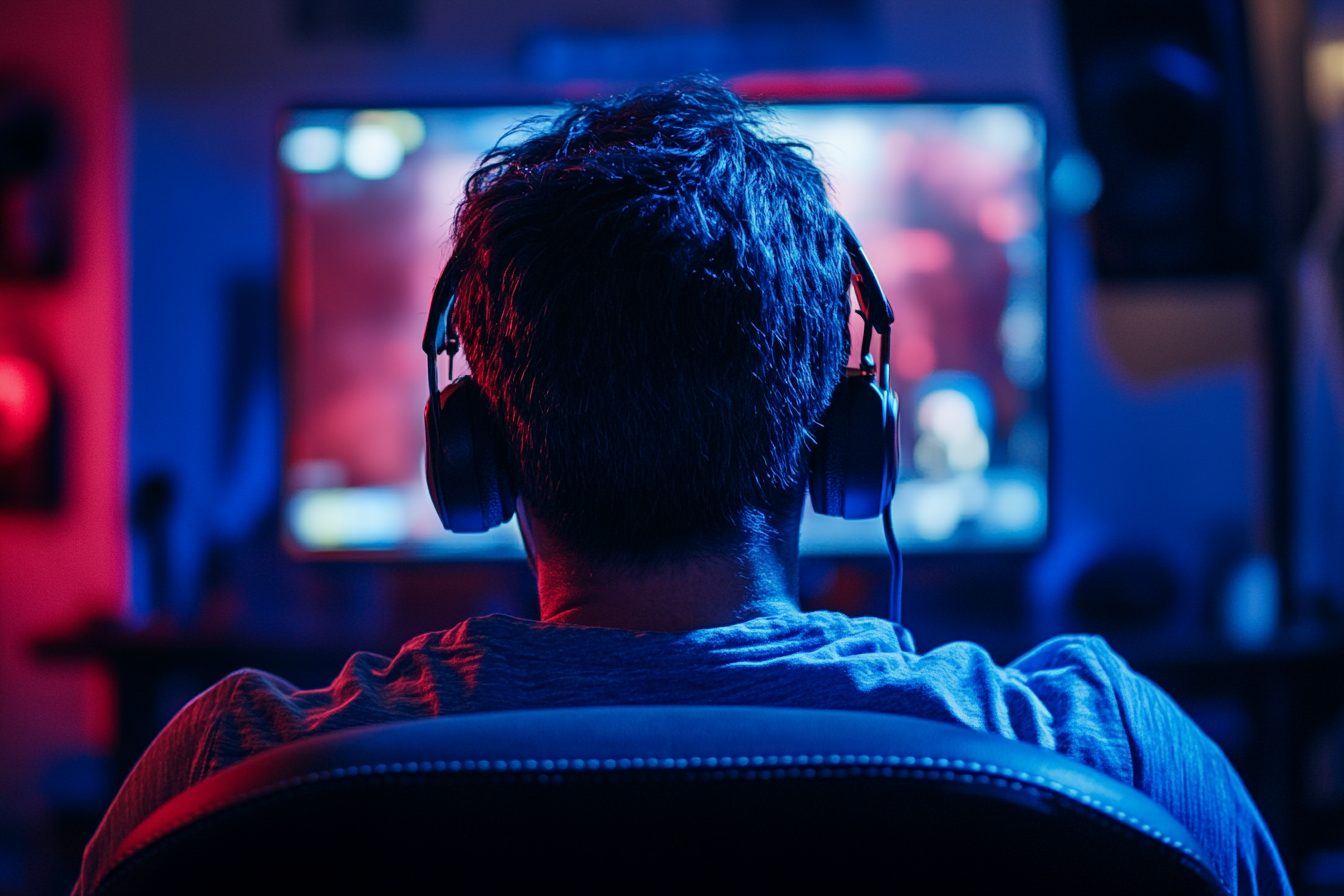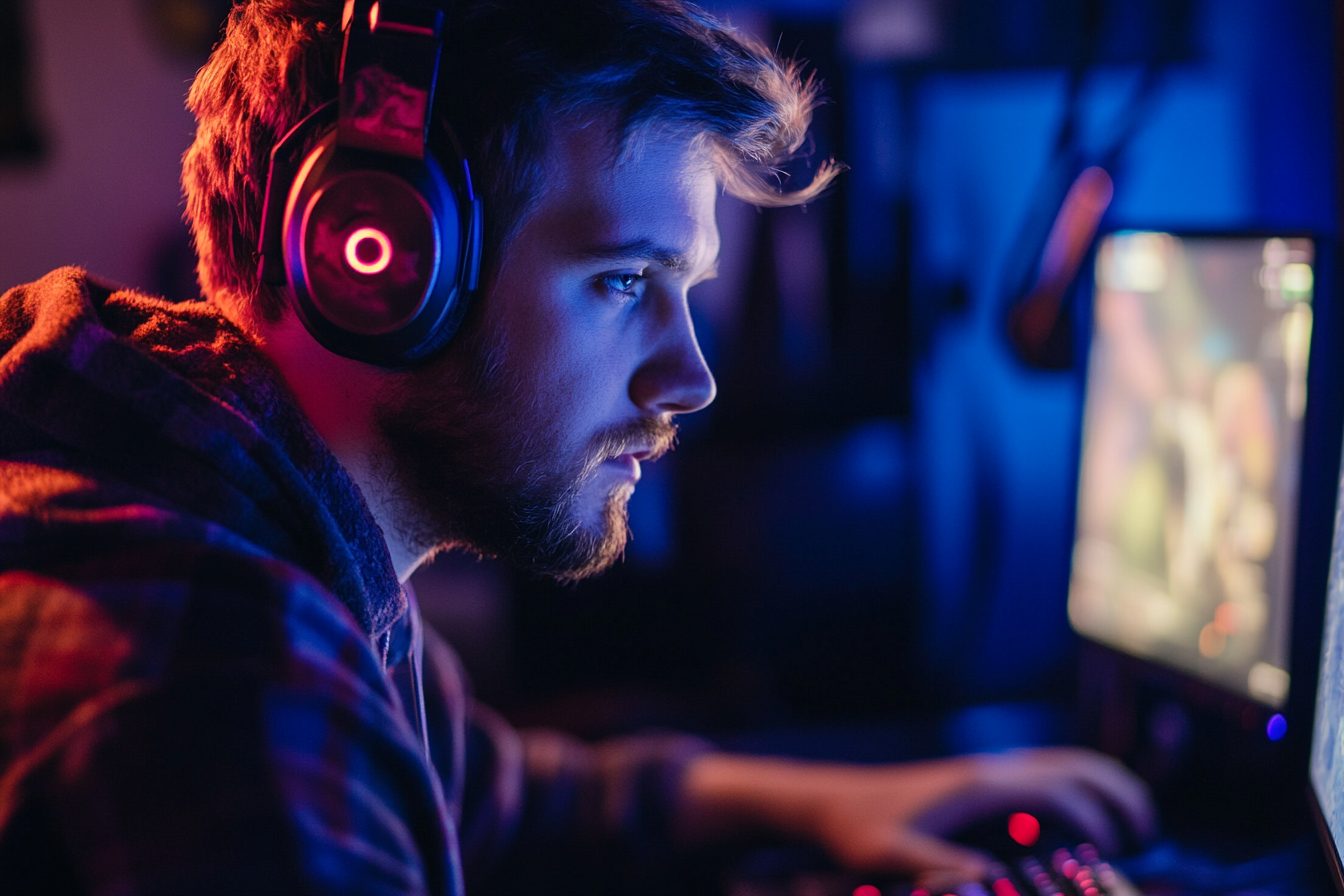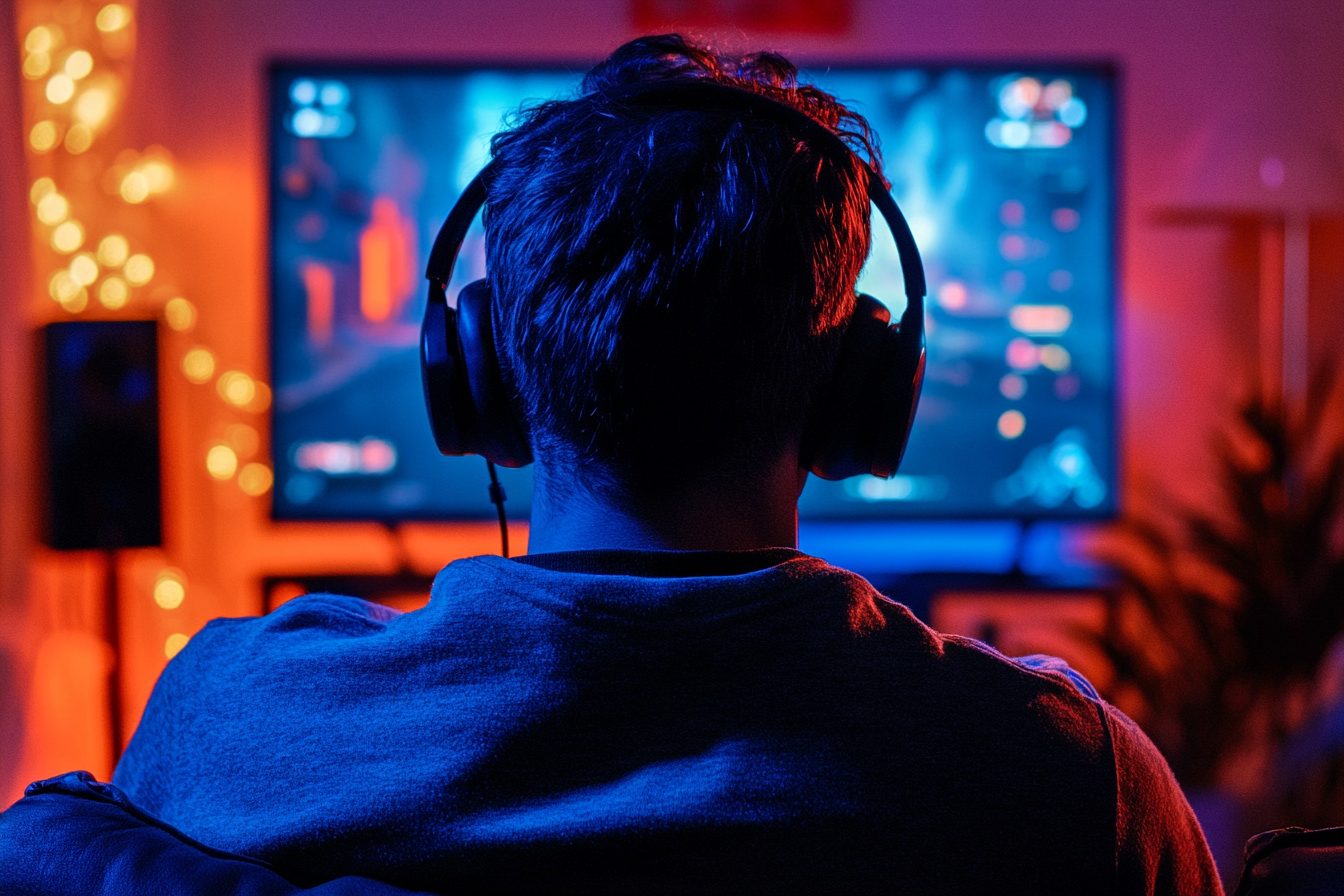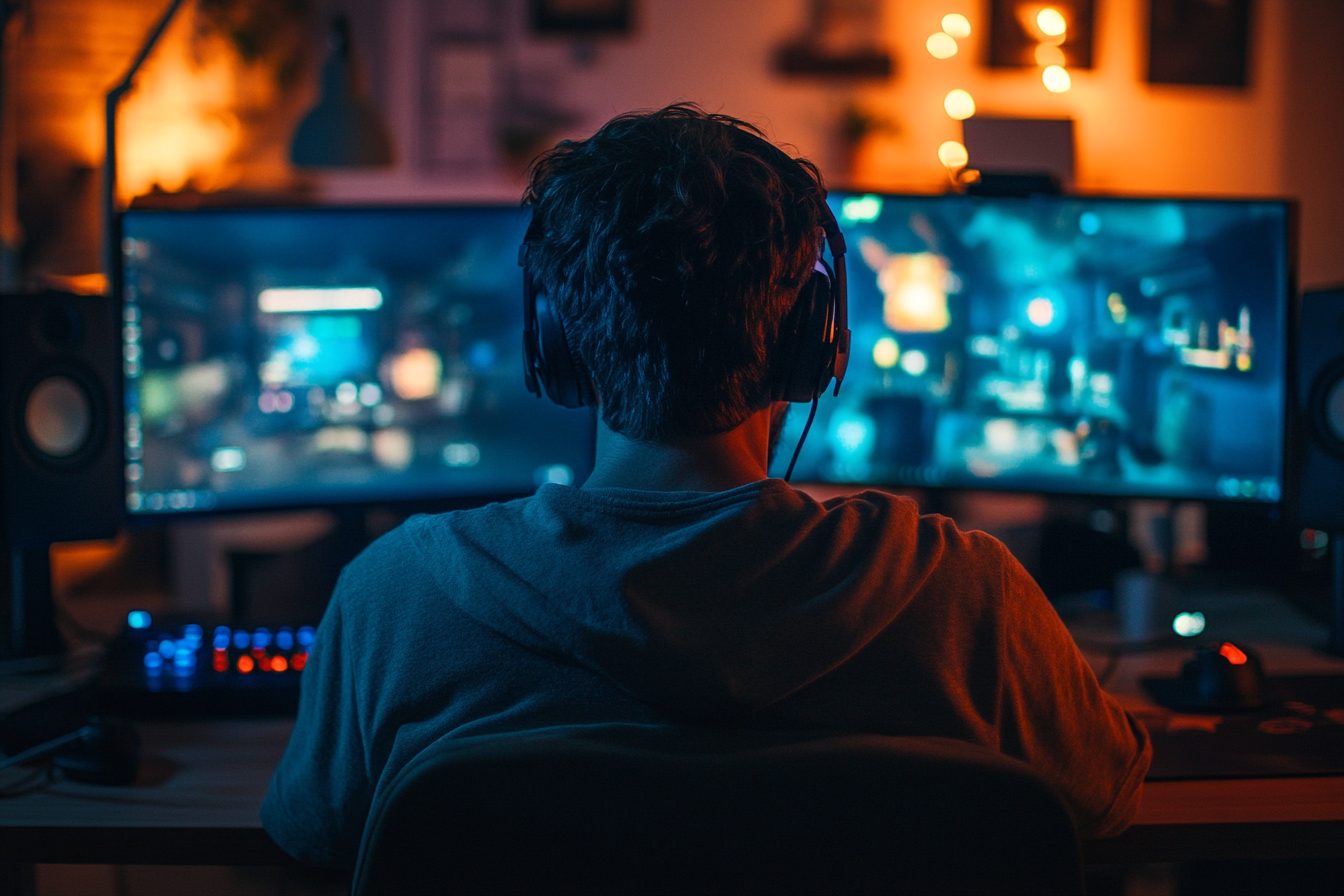My wife entered my home office on the past Tuesday around midnight. The moment she entered the room, I abruptly slammed my laptop shut as if I was a teenager who got caught on an NSFW site. “Working late?” is what she asked as she walked closer, clearly noticing something was off.
When it comes to lying, I am not smooth and the old saying ‘I need to meet deadlines and clients’ expects was floating around in the air. But there was an absurd reason behind her knowing my reasoning for working late was a lie. The reason being?
I watched a 22-year old kid who goes by the name BrianD94 play a video game for three hours. The worst part? I have never even touched a video game in my life.
Let’s cut to the chase. I’m 42, I have a degree, and I classify myself as a ‘functioning adult’, but regardless of the stigma that comes with being an adult, I have been addicted to watching streamers online. An absurd statement, right?
To clarify, I am not addicted to playing video games, but rather watching people like me interact with them. Gambling is interlinked with online Gaming in my perspective, as it is so alluring that following so many channels and having a handful of favorites become more engaging than their actual life. These gamers live in a parallel metaverse built out of belittling concepts and realities and is one that gravitated away from my circle of relatives, and I see more merit in the updates they provide me than most relatives.
Why is it that someone who wrote a whole book on reclaiming authentic experiences from digital simulations is now outsourcing their leisure time to people that are half their age? My vicarious descent into video gaming began quite innocently. While I was still working in tech, I had to keep up with the gaming community.
At that time, I used to follow competitive highlights and review videos to get a sense of the products we were developing. It was research, I told myself. Professional development.
When the pandemic struck and we were all faced with quarantine, my passive viewing habit grew when the boundaries between work and leisure were non-existent. I went from watching favorite highlight segments to whole streams. I signed up for platforms, subscribed to their channels, and even started chatting with the users in disguise.
With every new video the steaming platforms suggested, I found myself diving deeper into this fictional world. Now, I wasn’t just interested in the gameplay; I was also fascinated by the parasocial relationships that developed around these streams. The streamers started to feel like friends – their jokes, frustrations, and small victories provided a sense of companionship in an otherwise lonely time.
I was familiar with their pets’ names, favorite snacks, and even their ongoing technical problems. While they told personal anecdotes, I imagined them guiding avatars in video games, creating an eerily familiar backdrop to my evenings. The feeling of shame I associate with this practice is not particularly linked to gaming.
In contrast, video games are a genuine form of art and entertainment, one that I have defended in several articles against some outdated assumptions. However, it is a shame that stems from the all too passive character of my engagement – not playing but watching, not acting but sitting, not shaping reality, but consuming someone else’s. In the beginning, I was trying to explain this behavior because of some streaming comparison.
Isn’t watching a video game stream the same as watching a sport? No one questions watching a pro athlete on a Sunday afternoon. Why should gaming be viewed any differently?
But this justification fails under scrutiny. I don’t watch three hours of basketball every single night. Sports do not replace my personal exercises and activities.
The problem is not the content, but rather the amount and the shift of activities. What started as a rare leisure activity eventually turned into my default evening activity. When work is done, family time is over, and instead of reading the five books on my nightstand or starting my own creative projects, I indulge in the entertainment of watching skilled players on screen.
It is entertainment that demands nothing from me, not even the because pressing buttons or making decisions is too much effort. I do nothing and therefore all the effort required to physically exist is too much. A ghost are in digital worlds that I never will set foot into.
You don’t need to explain this one to me. I understand why today’s world doesn’t need passive watchers or consumers. Ironically, I have built my entire career behind advocating more hands-on interaction with both technology and the modern world and now I am sitting here doing nothing but reliving my meals through videos.
This is unarguably complicated. Aside from the passive part, the more appealing part is the fact that these streamers have skills beyond the capabilities of ordinary human comprehension. I mean, who has any issue watching the ultimate favorite?
No one. Simply look at the elite streamers who are skilled enough to steam roll through games who sizzling hot through a fighting game. It’s entertaining to watch true sportsmanship, from a concert pianist a the performer has all the motive looking into the power of fascinating to behold.
Don’t forget the other part of it, community. We all join into a single culture with minimal effort socially required, and that is one where game streamers are integrated into a harsh parallel universe with easy acess chatting. There is also no requirement for reciprocation and someone else friendships need invite.
The gaming streams serves as a well of sweet spots, having their pros and cons. They capture my attention in a way that actively engages me but at the same time ends the day on a good note without getting overly demanding. It allows me to feel like I am doing something while actually doing nothing which embeds comfortably within the perimeters of having responsibilities and decisions to deal with.
The irony is too tempting when the form of entertainment seeks the bare minimum participation to need my utmost attention. Having an endless amount of consumption solely for the purpose of entertainment is not something new for me; and already pre-covered many issues within my work. This passive form of entertainment distance my audience further towards having no real world experience.
Rather than partaking in a hobby, we shifted the purpose into observing someone do a particular activity. Gaming streams give me the transcend feeling when vicariously participating in an activity that I have no direct link with. What surprises me the most is that now, I don’t have to pretend to feel the simulation in order to enjoy it; I just have to watch someone else enjoy it.
The demographics of this phenomenon make it even more uncomfortable for me to participate. Mostly, streamers are at either the late teenage years or mid twenties. Their primary references, humor, and the way they view the world is from a generation that makes me old.
I find myself looking up terms used in chat while simultaneously trying to understand the conversations taking place alongside the game. I fear the much younger person seeing me would think I’m an older person trying too much to be sociable with the youth, and deal with this by withholding my age and not getting too involved in the debates. My wife has caught me multiple times now, each instance making it worse than the last.
“I thought you were against passive screen time,” For example, she caught me staring at a farming sim at 1 AM – was there any reason to be amazed?” At no point did she display any judgement, rather, she just seemed baffled at the disconnect between what I publicly claim to stand for, and how I actually live my life. Back then, I had no good reasoning to offer, and I am still looking for a better one. The closest thing to a defense I can come up with is that these streams, from time to time, move me to want to play games again – to take part in them rather than to watch.
When I come across streamers working their way through difficult titles, I sometimes feel motivated to grab my gaming system I haven’t touched in years. But motivation has no substance under the critical gaze of my screen time statistics. The amount of time I spend watching versus playing games is about ten hours to one hour.
The motivation practically never leads to full participation. What is most troubling to me is not the problem itself, but what it shows me about my direct experience. Have I been so attuned to teeth-free digital consumption, that even playing a game myself seems like way too much work?
Has my ability to actively participate dwindled down so much, that it is easier to passively consume and experience someone else’s life through content instead of molding your own life to fit the goals you want to achieve? These questions go beyond gaming streams to other parts of life on the internet. How many of us skim over posts and pictures of other people enjoying their vacations, instead of coming up with our own plans for adventure?
How many people find themselves watching cooking videos rather than actually stepping into the kitchen to prepare food? The phenomenon of living through the digital world has widened its scope of existence and nearly every other aspect of human life. I’ve adopted various strategies to cope with this problem.
I have already set limits for screen time that I will go over. I have blocked and unblocked streaming sites “just for tonight.” I have also set rules to check on my favorite streamers only after finishing a book chapter. These strategies work at first but do not last due to the strong urge to passively consume content.
My replacement approach was far more successful than any limitation strategy. Some local gaming groups do offer the community aspect without the passive school watching part. There are also creative projects that make use of the flow state that good gameplay provides.
Other physical activities give more satisfying and progressive achievements. But, I still find myself drifting to these streams when I am more tired than usual. Streams have come to be a way to cope with tiredness and as an easy way to mentally relax – a digital form of convenience O.
Like comfort food, the concern is not over-indulgences, but their excessive use to the detriment of more useful options. Maybe a more effective approach is not total avoidance but rather a more engaged version of participation. My goal is to shift my relationship with these streams from being a passive consumer towards an active learner.
When I watch, I make an effort to understand the game mechanics, the game’s strategic thinking, and the creative problem-solving taking place around it. I make the viewing confined in time as opposed to limitless. I have even started trying to play some of the games I watch the most in an effort to try to blend observation with participation.
I’m also being more open about this behavior as I start with this confession. There seems to be some level of freedom residing within those contradictions we face of our digital lives: the difference between what we know we should do and what we do when the need for willpower is minimal and the algorithms know how to draw our attention. So the next time my wife catches me watching BrianD94’s speed run, instead of shutting my laptop or making my way around a work-related excuse, I will accept what I am doing.
In fact, I will explain to her what is captivating about it and in all probability, I’ll ask her to spare a couple of minutes to watch with me. Not because I am proud of this habit, but for the fact that it no longer serves the purpose of a shameful secret renders it powerless. And hey, I’ll set a timer for five more minutes of watching before I turn off the stream and actually jump into the game.
Sure, watching someone else play some video games doesn’t do any harm, but even in the digital world, experience is experience, and every one of them deserves some importance in a balanced lifestyle. The videos that people skillfully play and render on my screen are there for my very own exploration, which encompasses all of the engaging frustrations, triumphs, and genuine emotions that come from real-life involvement as compared to passive observation. With all this in mind, something I have thought several times in a working environment, life is something one should engage with – not something that is meant to be observed uncritically.







